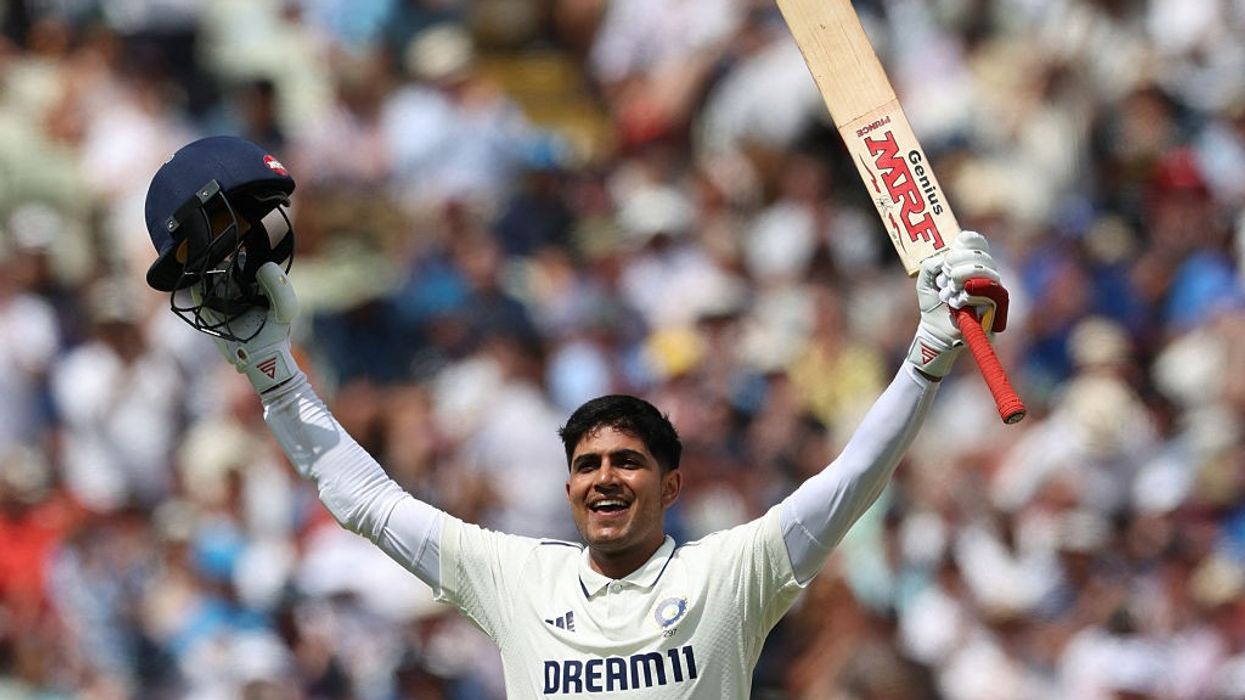SHUBMAN GILL etched his name in cricket history on Thursday (3), becoming the first Indian and Asian captain to score a double-century in a Test match on English soil as he powered India to a commanding position at Edgbaston.
The 25-year-old skipper scored 269 on the second day of the second Test, having shattered multiple records in a masterful innings that has put England to the sword.
Gill not only achieved a career-best knock but also posted the highest ever individual score by an Indian captain in Test cricket, surpassing the great Sunil Gavaskar's 221 at the Oval in 1979.
He reached his first Test double-hundred and walked off unbeaten on 265 at the tea, having taken 311 deliveries to reach the 200-run milestone. His innings, decorated with 30 fours and three sixes, saw him join an elite group of Indian captains alongside MAK Pataudi, Sunil Gavaskar, Sachin Tendulkar and MS Dhoni who have scored double-hundreds whilst leading the side.The Punjab batsman's achievement is particularly significant as he becomes only the third Indian batter to score a double-century in England, following in the footsteps of legends Gavaskar and Rahul Dravid.
Previously, Mohammed Azharuddin's 179 in Manchester in 1990 was the highest score by an Indian captain in England, while his 192 against New Zealand in Auckland the same year held the record for the highest score by an Indian skipper in a SENA (South Africa, England, New Zealand, Australia) country.
Gill's innings has been marked by near-flawless execution. After resuming on 114 not out, the skipper continued his assault on England's bowling attack with clinical precision. He was particularly harsh on off-spinner Shoaib Bashir, whom he cover-drove for four and lofted for six.
The India captain also struck two fours in three balls off fast bowler Josh Tongue, showcasing his range with an on-drive followed by a flick off the hip that left fielders Joe Root and Zak Crawley scrambling unsuccessfully to prevent the boundary.
When England desperately introduced part-time medium-pacer Harry Brook in a bid to buy a wicket, Gill responded by striking him for three successive fours, the best being a textbook straight drive that underlined his technical excellence.
This remarkable innings comes just a week after Gill scored 147 in his debut as Test captain at Headingley, where India suffered a five-wicket defeat to trail 1-0 in the five-match series. His consistency at the top level has been extraordinary, with the double-century marking his seventh Test hundred in just 34 matches.
Remarkably, Gill has now scored centuries in each of his first two Tests as captain, joining an exclusive club of just seven players to achieve this feat.
India, who were sent in to bat by England captain Ben Stokes, had resumed Thursday's play on 310-5 after an excellent first day. They were eventually bowled out for 587.
Gill received excellent support from Ravindra Jadeja, who contributed 89 in an outstanding sixth-wicket partnership of 203 runs. When Jadeja was dismissed by Josh Tongue, recalled all-rounder Washington Sundar stepped up to provide further assistance to his captain.
The massive total represents a significant improvement from India's collapses of 7-41 and 6-31 that cost them dearly in the first Test at Headingley, demonstrating the team's determination to level the series.
(Agencies)





